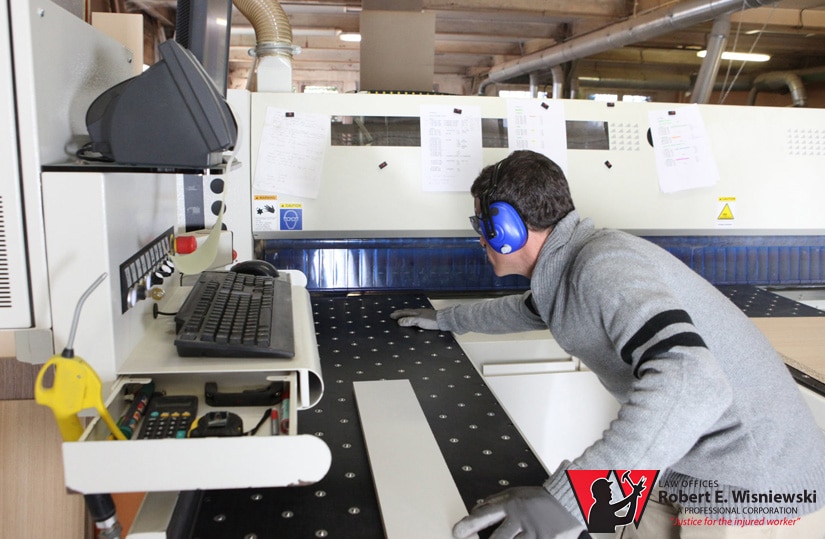How to receive workers’ comp for vision or hearing loss on the job
A workplace injury can have serious implications for an employee and their dependents. Workers who suffer from occupational blindness or deafness might be unable to return to work at all. Getting workers’ compensation and disability can be critical for these employees and their families.
If you’ve experienced hearing or vision loss while on the job in Arizona, reach out to our team of experienced lawyers today. We’ll begin fighting for your rights to compensation immediately.
What are the leading causes of hearing and vision loss in the workplace?
Hearing loss is often the result of working for a sustained period of time in a noisy environment. Even when employers provide their employees with ear protection, some workers may not use it because they feel it hinders their performance. This points to the importance of safety training and ensuring that workers understand the dangers associated with working around loud noise and vibrations.
The U.S. Bureau of Labor Statistics estimates that there are roughly 20,000 eye-related workplace injuries annually. Punctures, cuts, lacerations and chemical burns may all cause serious eye injuries and even partial or complete loss of sight. As is the case with noisy environments, workers should be provided with protective wear and eyewash stations, and they must be properly trained on how to use them.
Common causes of injury include flying debris, malfunctioning tools and spattering chemicals. However, even office workers and others who work in what is considered “low-risk” work environments could suffer from an eye injury on the job.
What industries typically have the most hearing and vision loss claims?
Some studies say that as many as 80 percent of people who work in manufacturing have suffered some degree of hearing loss. The compressed air and noisy machinery that people are exposed to over a long period of years may cause a gradual loss of hearing so that the worker doesn’t realize there is a problem until the damage is substantial and irreversible.
Mining is another industry with a high rate of hearing loss, as well as people who work in carpentry and construction. People who work in construction and manufacturing are also at higher risk for eye injuries. One-quarter of on-the-job injuries to welders are eye-related, which may be caused by chemical burns, radiation or flying debris.
The most common disability related to military service is hearing loss. This is due to the exposure to gunfire and explosions or the noise of aircraft engines and ships. Many farmers also suffer from hearing loss as a result of exposure to loud equipment.
People who work in nightclubs and other venues that regularly play loud music—including DJs, musicians, waiters and security staff—are exposed to noise that is as loud or louder than in manufacturing and other industries. They are often given no ear protection, leading to hearing problems.
Electricians may be in danger of impaired vision or blindness as a result of electrical shocks, while laboratory workers may suffer from chemical burns to the eyes.
What are the costs of a serious work injury?
The loss of hearing or sight can be devastating to a person’s ability to continue working. The U.S. Bureau of Labor Statistics estimates that, collectively, 37,000 days are lost by employees to eye injuries each year. In addition to being unable to earn money, there may also be significant medical expenses and long-term care costs.
One study by the U.S. Centers for Disease Control and Prevention found that occupational hearing loss incurs a total annual cost of $242.4 million. In addition to substantial medical costs, an employee may never be able to return to their previous position at work.
What steps should be taken to secure workers’ compensation in Arizona?
People who suffer eye or hearing injuries at work may be eligible for a workers’ compensation settlement for eye injury or workplace hearing loss compensation. An employer’s insurance should cover all medical costs, but sometimes an injured worker has to fight for these benefits. The employee may also receive a portion of their lost wages during recovery, usually paid at 2-week intervals. A person who is permanently disabled may receive a series of payments or 1 lump sum payment.
Most employers in Arizona are required to provide workers’ compensation insurance.
While employers can choose the first medical professional that an injured employee sees, the employee can choose the subsequent providers. As soon as possible after the injury occurs, the employee should document the details of the incident in writing.
This should include where and when the injury occurred, as well as the circumstances leading up to it. Having this documentation can make the claims process easier and will also be helpful if an appeal is necessary.
The employee is then required to provide a claim form. It must be filed within 1 year under Arizona law. Separately, the employer must also complete an Employer’s Report of Injury to the Industrial Commission of Arizona (ICA).
The employer’s insurance carrier must respond within 3 weeks. There is a fee schedule in Arizona that specifies how payments for medical bills are made. If there is a denial, a request for a hearing has to be filed in the next 90 days.
People who suffer an eye injury or a hearing loss at work should consult an experienced workers’ compensation attorney to ensure that they understand their rights and to discuss the steps they should take to get compensation.


